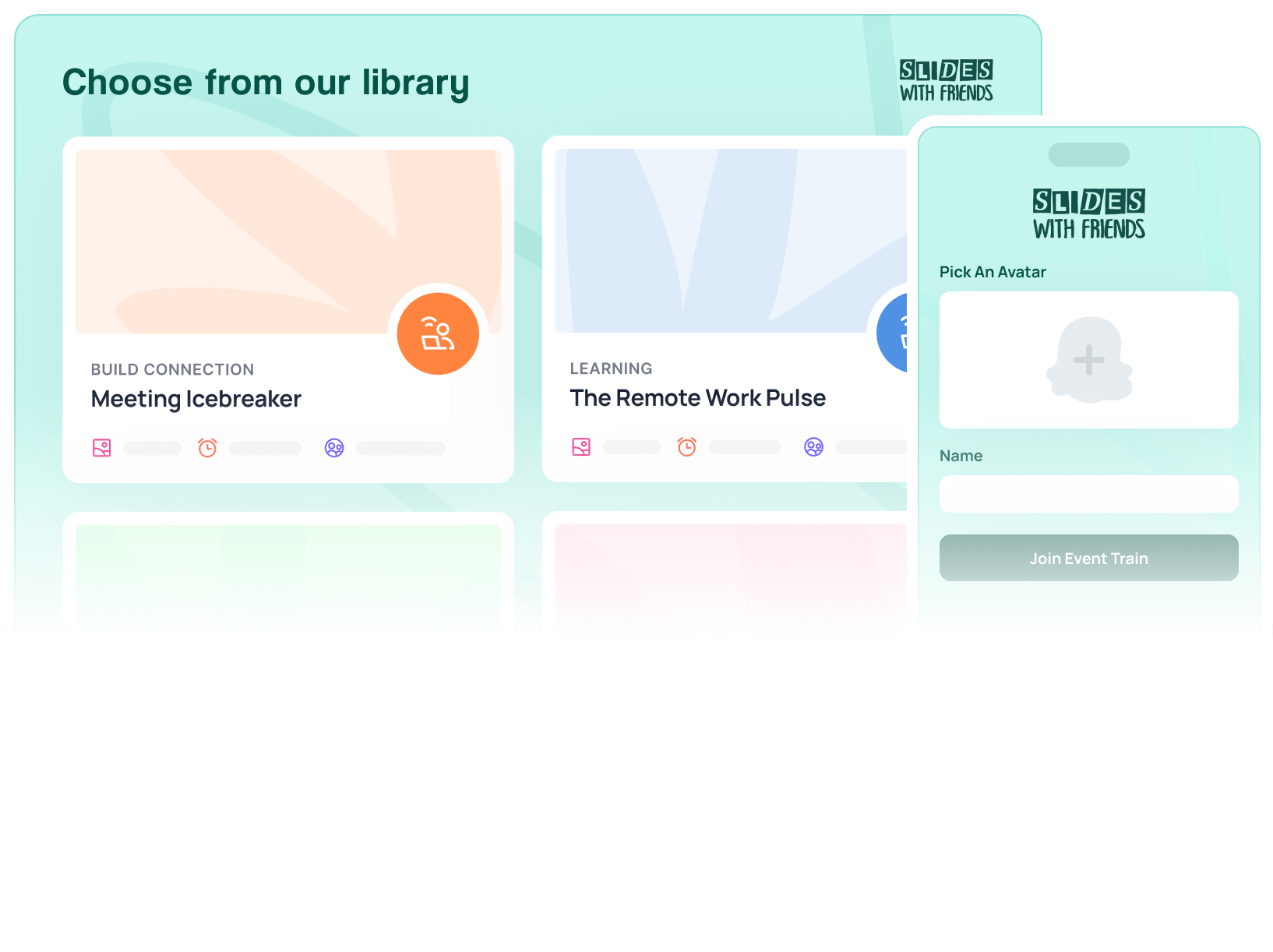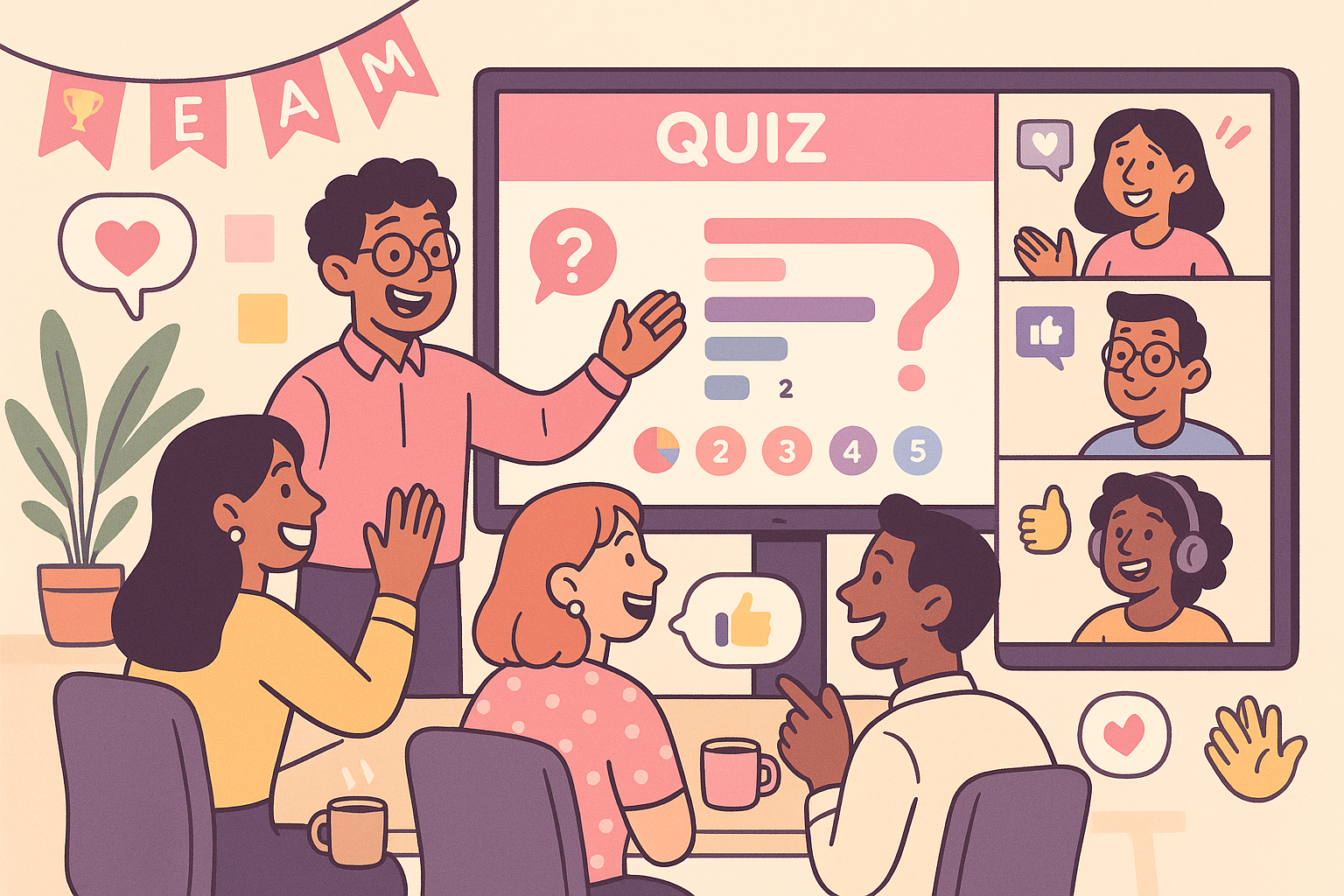22 Professional Development Topics for Your Training Program
At a loss for what to include in your professional training programs? Check out these topic ideas to find your next curriculum enhancement.

Your company’s success rests on your employees. They are the ones working on every step of your productive process. But the process is more than a transformation of an input into an output. It includes several aspects of your company — its culture, its relationship between employees, and the way it communicates with the customers.
Training programs have one goal: to improve productivity. And you can reach this goal from two different angles. You can either improve your team’s technical skills, or you can work on their professional development. Professional development includes skills that apply to all employees, regardless of role.
These skills seldom translate into a direct productivity boost. But it’s easy to see how they could benefit your bottom line. If your team is experiencing frequent conflicts, you will notice their productivity plummet. Who wants to put effort in an hostile environment? That’s when hosting a conflict resolution workshop will yield better results than any technical training.
So, we interviewed professional development experts to find out the best topics for employee training programs. We included a wide selection of subjects so that you can pick the ones that best fit your company.
Effective Communication Skills
Communication is the mother of all skills. And poor communication is the mother of many issues.
How many bottlenecks have you seen happen because of a basic misunderstanding? A misinterpreted email or a vague instruction can snowball into delays, errors, and conflicts within your organization.
Clear and effective communication is essential in the workplace for several reasons. It fosters transparency, builds trust, and promotes collaboration among team members.
When communication is lacking or ineffective, it leads to confusion, frustration, and decreased morale. Which slows down productivity and the achievement of organizational goals.
Team Building and Collaboration
Your company is a collection of people working towards a shared goal. As such, it’s crucial they work well together like a unit. And that’s what professional development on the topic of team building and collaboration aims to teach.
It doesn’t have to be complicated. You can start with a 20 minutes game session to promote teamwork as a fun team activity. Here are 3 slide decks you can start with:
If you want to more hands-on team building ideas, there is no shortage of activities you can host.
Project Management Fundamentals
Project management isn’t the prerogative of project managers. In today’s dynamic work environment, it’s growing in importance for employees across all levels and roles.
Take tasks such as delivering a client presentation, launching a new product, or organizing a company event. All these are common employee duties that require project management skills.
Incorporating project management fundamentals into your training programs improves your employees’ efficiency. Beyond efficiency, these skills foster better decision-making, enhance team collaboration, and aid a more agile response to unforeseen challenges.
Personal Finance Management
Personal finance might seem out of place on this list. But employees with financial literacy understand budgeting, saving, and managing debt. They can create better retirement planning and make informed decisions about workplace benefits like health insurance.
Imagine an employee facing a sudden financial emergency due to poor financial management. They're overwhelmed by mounting debt. They struggle to make ends meet. And they worry about their financial future.
As a result, their productivity at work begins to decline. They're distracted, stressed, and unable to focus on their tasks. Deadlines are missed, and quality of work suffers.
Personal finance training helps you avoid these scenarios. This type of training improves employees' financial well-being. And better finance management means reduced stress, increased happiness, and less absenteeism.
Personal Branding and Professional Image
Your employees are a vital part of your company. The way they conduct themselves affects your company’s image.
An employee who gets riled on social media sends a bad message about your organization. But one who cultivates a solid professional image contributes to your brand's reputation.
Your employees are ambassadors of your company’s values and culture. Their behavior influences how clients, partners, and the public perceive them. And, by extension, your own branding.
The return on investment in personal branding training is great. Your employees learn to manage their reputation, offering them better career prospects. Your company boosts its brand perception among stakeholders.
Networking and Relationship Building
Deals live or die by the quality of your business relationships. An employee of yours chatting with a CFO at an industry event could lead to a partnership. But for that to happen, your employee has to know about networking and relationship building.
For this type of training, you can start with getting people used to ask basic questions. For example, have them practice with a deck like this one:
You can then move onto the intricacies of relationship building, with topics like active listening and relationship management techniques.
Employees good at networking will make more deals fall into your lap. And they might even get top talent from other companies to become interested in joining your company.
Stress Management and Resilience
Stress is a constant in today’s world. It’s not a question of whether it’s there, but how much, and how to deal with it.
Stressed employees do not perform at their job. And can you blame them? They feel the pressure mounting as their life feels like a set of walls closing in on them.
Hosting seminars on stress management equips employees with tools to deal with the stress. It helps them keep their cool under pressure and focus on their job. Resilience helps them bounce back from setbacks and come back ready to work.
Presentation and Public Speaking Skills
Let’s face it: the thought of presenting can make even the most seasoned professionals quiver. Yet, conveying ideas persuasively in front of an audience is an invaluable skill.
Imagine one of your team members is about to present a project update to the entire department. It’s their time to showcase months of hard work. The room is filled with peers, managers, and maybe even a couple of executives.
A polished presentation is a stepping stone for future opportunities. It can convey the hard work that went into the project, and win the team's respect and recognition. But an unprepared, stammering presenter will have the opposite effect. The project will seem confusing, or worse, negligible.
Conflict Resolution and Negotiation Skills
Sometimes, tensions rise among people at the office. It's expected, and you can't do anything to prevent it. But you can lower their impact by training your team in conflict resolution. Effective conflict resolution transforms potential breakdowns into breakthroughs.
Take, for example, a scenario where two departments clash over resource allocation. It's a common occurrence that, if not addressed, could lead to block a critical project. There are two possible outcomes: either the situation escalates to HR, or the departments solve it themselves.
The former is not ideal, as it takes time and attention from HR. The latter is the preferred solution, and you can promote it with proper training.
Negotiation and conflict resolution go hand in hand. These skills foster a culture of collaboration and mutual respect in the workplace. As a result, you reduce conflict, boosting productivity.
Ethics and Integrity in the Workplace
Ethics are integral to your company's culture, as they inform the way your organization sets up and conducts deals.
Consider the case of a sales rep who discovers a flaw in a product right before closing a major deal. They face a choice: hide the flaw and make the sale, or disclose the truth and risk losing the deal.
With a strong ethical foundation, the decision is clear. The rep opts for honesty, the deal goes on hold, but the company’s integrity remains intact. The client’s trust is deepened, leading to a better long-term relationship.
Including ethics and integrity in your training program helps you build a brand. One that speaks to your company's values, and that builds trust among stakeholders.
Change Management and Adaptability
The market is a dynamic force that changes often. How your team responds to change can either become a catalyst for growth or a stumbling block to success.
The cemetery of flagship products that have turned obsolete is ever-growing. Myspace, Internet Explorer, and Blockbuster are but a few gravestones serving as warning. Companies that cling on the old ways do not last long in the marketplace. Those that embrace the challenge, however, reap the benefits of their efforts.
Change management and adaptability training teaches employees to embrace new challenges. These training paths create a workforce that thrives on innovation and embraces the new. They ensure that when the winds of change blow, your company doesn’t build walls but windmills.
Coaching and Mentoring Skills
In-house mentoring is an underused resource in many organizations. Each one of your employees comes with a unique set of skills. Skills that they could teach to their peers. But it's often the case that they don't feel confident in their teaching abilities.
Young professionals often brim with potential, but they don't know how to navigate the corporate ladder. A seasoned mentor could help these new professionals integrate in the workplace. The mentor helps the mentee set clear goals, develop new competencies, and build confidence.
Plus, investing in these professional development topics creates a tighter community. People get to see their colleagues as helpful teachers, not mere coworkers. The result is a more relaxed and productive workplace.
Time Management Skills
While the phrase "we all have 24 hours in a day, it's how we use it" sounds trite, it is true. And that's why time management is a solid pick for a professional training topic.
Consider a marketing team juggling several campaigns. Scatter gun approaches lead to missed deadlines and half-baked strategies. Time management skills help them set realistic timelines, balance workloads, and ensure each campaign gets the attention it deserves.
Time management correlates to productivity. Teams that are good at it are more productive than teams that aren't. You can — and should — empower your employees to make the most of every minute. That way, when the clock ticks, they’re not racing against it—they’re in sync with it.
Tech Skills
In a world where digital is the new default, tech skills are no longer optional; they’re essential. It’s the difference between a workforce that’s future-ready and one that’s stuck in the past.
A common scenario is a company buying a new CRM without training their customer service reps on how to use it. It plays out as you'd expect: the reps fumble through calls, notes get lost, and customer satisfaction takes a nosedive. Now, flip the script. The same rep, trained in the software, handles queries like a pro, data is organized, and customers feel heard.
While the example is extreme, similar situations arise daily on a smaller scale. Buying a new software takes a credit card swipe; learning to use it takes time, which you can't buy.
That's what makes investing in tech skills a winning play. It ensures that every employee, regardless of their role, has the digital dexterity to use technology to their advantage.
Legal and Compliance Skills
Legal and compliance skills save your company from expensive violations.
For example, your HR department handles sensitive employee data. Without a solid grasp of privacy laws, they risk breaches that could erode trust and invite legal action. But with proper training, they manage data with care, protecting the company’s and employees’ privacy.
This topic applies to all employees, not only to those working in the legal department. Mistakes can slip past them, or they might have lots of work to do. With compliance training, however, you lower the risk of skimping regulations.
Customer Service Excellence
Some companies consider customer service an afterthought. Ever contacted support and got bounced around like Asterix in The Place That Sends You Mad? Or felt like the customer service rep couldn't help you solve your issue?
Customer leaving with a negative impression of customer service can cost you business. A negative review often causes other people to distrust your company. That's why developing customer training programs is important for some organizations.
The goal of these professional development programs is to instill a customer-first mindset. They turn every support ticket into an opportunity to build a relationship.
A well-serviced customer is one who will tell about their good experience to their peers. You too can tap into this opportunity, with 92% of people trusting recommendations from their friends.
Data Literacy
Data often feels like a buzzword in modern business jargon. We collect massive amounts of data, we have data-driven marketing, and we take data-driven decision. But are we using this deluge of data properly?
That's what hosting professional development workshop around data literacy entails. Data literacy is the compass that guides businesses through the sea of information.
Training your team in data literacy is about empowering them to interpret, analyze, and make decisions based on data. It’s not the prerogative of analysts or data scientists. Every department, from marketing to HR, can use data to drive strategy and innovation.
Take a product manager sifting through customer feedback. With data literacy skills, they can spot trends, quantify feedback, and pick what aspects of the product to improve first.
Data holds plenty of insights into the market and how your business is faring. And data literacy serves as a vehicle of understanding these insights. The impact is even greater when paired with enterprise search tools that give employees direct, governed access to the knowledge they need, exactly when they need it.
Diversity and Inclusion
Sensitivity training is a must in the modern multicultural work environment. Offices have people from all walks of life, but most are oblivious of others’ struggles.
It can happen that an insensitive joke gets thrown around with no intent to offend. Yet, it can — and often does — offend someone who feels targeted by it.
These situations cause tension in the workplace. Tensions that could escalate to the point where Human Resources get involved, which diverts their attention from other activities.
Or consider a design team brainstorming for a new product. With a diverse and inclusive team, you get a plethora of ideas that cater to a wider audience because the team reflects that audience.
You can get started in this type of training with this deck:
Investing in professional development in diversity and inclusion is sure to improve your company’s culture and unlock new ways of reaching its target audience.
Emotional Intelligence
Emotional intelligence (EI) is the ability to be aware of, control, and express one’s emotions. It helps handle interpersonal relationships with empathy and good judgment.
An example of the impact of EI is a manager dealing with a high-stress project. High EI helps them keep their cool and support their team throughout the project. Without any training, they could break under pressure, which could prove fatal. A manager who disregards the team's ideas and needs risks dooming the project to failure.
That's what makes emotional intelligence a solid professional development topic. It fosters a workplace where empathy and understanding are as valued as technical skills. It helps you create a culture where employees feel supported and understood. Which can lead to increased loyalty and productivity.
Health and Wellness
Your employees are at risk of burning out in the hustle of deadlines and meetings. And a burned out employee is not performing on the job.
Health and wellness training nurtures the well-being of employees so they can bring their best selves to work. This training can cover a range of topics, from ergonomic practices to mental health awareness.
It’s about creating a workplace that recognizes the importance of physical health, offers strategies for stress management, and supports mental well-being.
Consider an employee who’s feeling burnt out. With access to wellness resources, they can learn techniques to manage stress, find balance, and recharge. Or think of a team that starts each meeting with a mindfulness exercise, setting a tone of calm focus for the work ahead.
By incorporating health and wellness into your training program, you’re not just investing in your employees’ productivity; you’re investing in their overall quality of life. You’re sending a message that you care about them as individuals, which can lead to increased job satisfaction and loyalty.
Creative Problem Solving
Creative problem solving is vital for navigating the complex challenges that arise in the workplace. It enables teams to avoid conventional thinking and devise new solutions to grow the company.
Creative problem solving equips teams with the tools to turn obstacles into opportunities. It teaches them to question assumptions and to explore a range of possibilities. This approach can turn a routine project into a launchpad for breakthrough ideas and initiatives.
Training your team in creative problem solving cultivates a company culture of innovation. It empowers your employees to chart a course for success that others might miss. And in the fast-paced world of business, that’s a competitive edge that can make all the difference.
Sustainability Practices
Ever heard of the term "greenwashing"? It's when a company pretends to be environmentally friendly, but it doesn't act that way.
Investing in sustainability practices lets your company walk the talk. It fosters a culture of respect for the environment, while keeping your organization profitable. Sustainability practices are the compass that guides a company towards a future where business success and environmental stewardship aren't mutually exclusive.
Examples include reducing waste, going paperless, or optimizing energy use. These activities are good for the environment and for business. Better energy use reduces your expenses. Going paperless lowers confusion. Reducing waste means reducing consumption, which saves cost.
Consider a manufacturing team that learns to reduce material waste. This not only cuts costs but also decreases the environmental footprint.
Sustainability is a great topic for professional development. It optimizes resource consumption, setting a standard of ethical business. You’re preparing your company to thrive in an economy where consumers and partners favor businesses that focus on sustainability.
Wrapping Up
Investing in professional development future-proofs your company. You're teaching your employees new skills that they will use to perform at their job. But also, you will show you care about your employee's well-being. In turn, they will view your company more favorably, reducing turnover.
But professional development also serves to build up your company culture. It shows your commitment to your team's professional growth. And how you care about creating an environment that nurtures not just the professional but the personal growth of every individual.


Ready to ditch the dull, and run team sessions that people will actually enjoy?
Get started with a Slides with Friends deck in no time. We’ve got all the interactive features you need in one easy-to-learn, easy-to-set-up tool.















